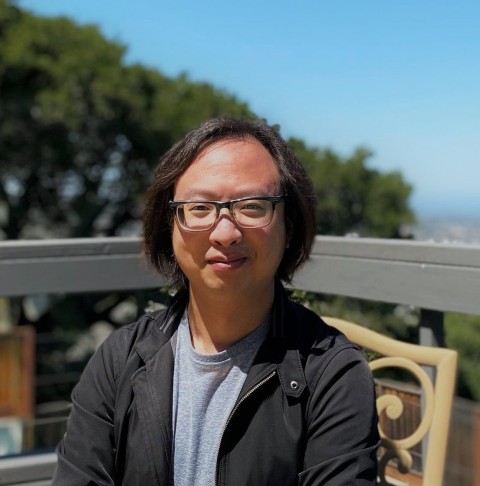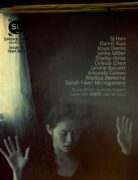“Endings” focuses in on one particular aspect of stories, the ending, and deconstructs it. What was your initial process that led you to write about endings?
I started this story as a form of stress relief. I was working on another unrelated piece and felt pretty good about it most of the way through, but then couldn’t get anything to fit together at the end. I kept hearing a little voice as I wrote, trying to keep tabs on things (and also, of course, judging me the whole time for not being able to get it right): “Okay, you’ve got this so far, and that seems pretty good at least. What if you change this? Oh, wow, no, that didn’t work at all. What about that? Yeah, maybe ….” So I took a break, opened a new document, and started writing in that little voice instead.
The voice in this piece stood out to me as anti-romantic and yet resonated with me so well. What does it say about possible challenges against a writer’s choices?
Yeah, choices are kind of a double-edged sword, right? They’re part of what makes writing so exciting but they can also overwhelm you with the sheer possibility of it all. That’s one of the things I love about reading. Every once in a while I’ll come across a story for which I trust the author completely, and can sit back and let them guide me through what feels like a divinely determined series of events. First A happens, and then B happens—of course it does, it couldn’t happen any other way. I can see it happening, as it will always happen, right there on the page.
Writing has never felt like that for me. Nothing is set in stone. Even if I think I know the precise sequence of events in a story when I start writing, half of those things have changed by the time I’m done. If I want the main character to live instead of die at the end, all I have to do is mash the delete key. I suppose maybe that’s why the voice in “Endings” sounds like it does. It’s still hopeful but it’s grown a little weary. It’s decided that nothing is ever going to feel as magical and preordained as those moments when you’re reading and letting someone else tell you what’s going to happen next. There’s too many options, and no one is helping you decide which ones are best. So all you can do is try them and see what comes of it.
It is crazy to think about a story with multiple endings and your piece builds up an expectation for multiplicity. However, the voice of the narrator keeps reminding of failures like a killjoy. What drives the narrator to create this complex picture?
There’s a passage in one of Stephen King’s books that describes writing as, essentially, a form of telepathy. A good storyteller can have an idea in their head and use their story to convey that idea into your head, without stating the idea itself. Sometimes the only way to successfully convey an idea is to state everything around it. That’s pretty cool, in my opinion. When that telepathy goes awry, though, I think it can feel extra upsetting. It’s like having a word on the tip of your tongue, except the frustration is correspondingly greater, because now you’re not flubbing a mere word but a Big Idea that feels like it could be really, really great, if you could just get it right.
“You can nurture it, as best you can. You can see it free in the wilds. You can take your thumb and your fingers, curl them around tight, press your knuckles together, and squeeze.” These lines are my favorites! How do you see other writers who are doing or have done what the narrator in this piece is professing?
I liked the idea of ending on that image of violence. It felt satisfying to me, after the rest of the story’s ambivalence. And I suppose those lines get to a bigger question for writers, but also for artists in general, or anyone who is in the middle of a creative activity: Why do we care so much about what we’re creating? Why does it matter to us, and why does it feel wonderful when it seems to go right and so very awful when it goes wrong?
There’s lots of possible answers to that question, and each of us will respond to it in our own way. But maybe one possible answer is: Because it’s ours. We alone are making it, and if we don’t continue to sit here and hack away at it, it will, quite literally, disappear forever. That kind of responsibility has to carry at least some weight, right?
“It doesn’t matter how you change the rest of the story—the ending falls apart, and you’re starting to believe it always will.” What are some of your writing tips that will save us from heartbreaks from the endings of our own stories?
I’ll offer my thoughts, but I should also say it’s entirely possible that tomorrow I’ll read some contrary advice by another writer and decide that they’re right and I was wrong. For me, it’s important when writing to have some thing I am writing towards. Usually that ends up being a set of themes, emotions, or reactions that I want the story to evoke. I know other writers who start with a particular scene in mind, and write the rest of the story solely so they’ll get to write that one scene. I’m sure there’s plenty of other possibilities. So I guess I’d say: Know why you are writing what you’re writing. Why did you pick this particular story out of all the other ideas you had this morning in the shower? Hopefully, that will help guide you towards the ending you really want.



 The core workshop of SmokeLong Fitness is all in writing, so you can take part from anywhere at anytime. We are excited about creating a supportive, consistent and structured environment for flash writers to work on their craft in a community. We are thrilled and proud to say that our workshop participants have won, placed, or been listed in every major flash competition. Community works.
The core workshop of SmokeLong Fitness is all in writing, so you can take part from anywhere at anytime. We are excited about creating a supportive, consistent and structured environment for flash writers to work on their craft in a community. We are thrilled and proud to say that our workshop participants have won, placed, or been listed in every major flash competition. Community works.